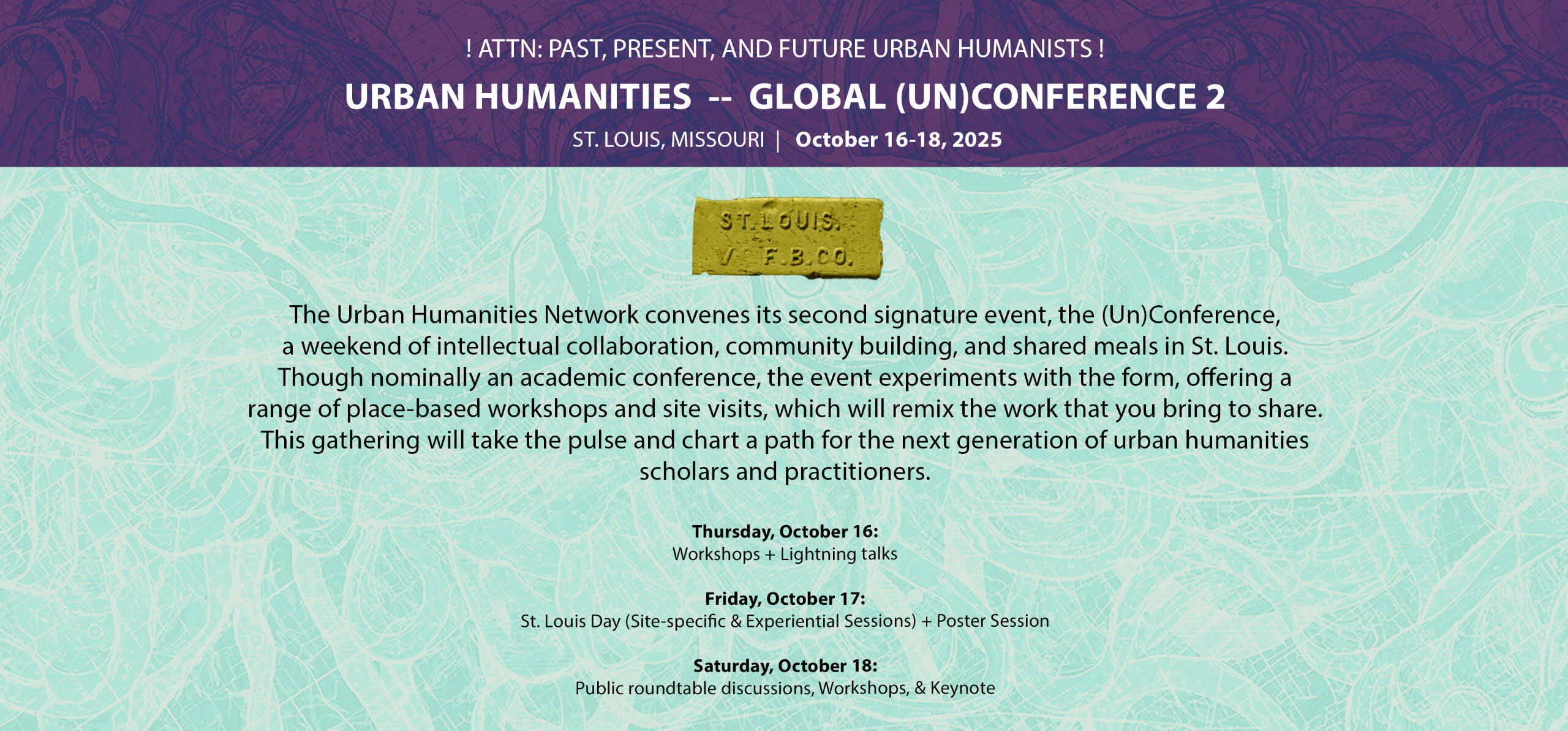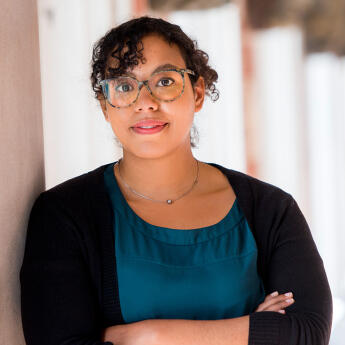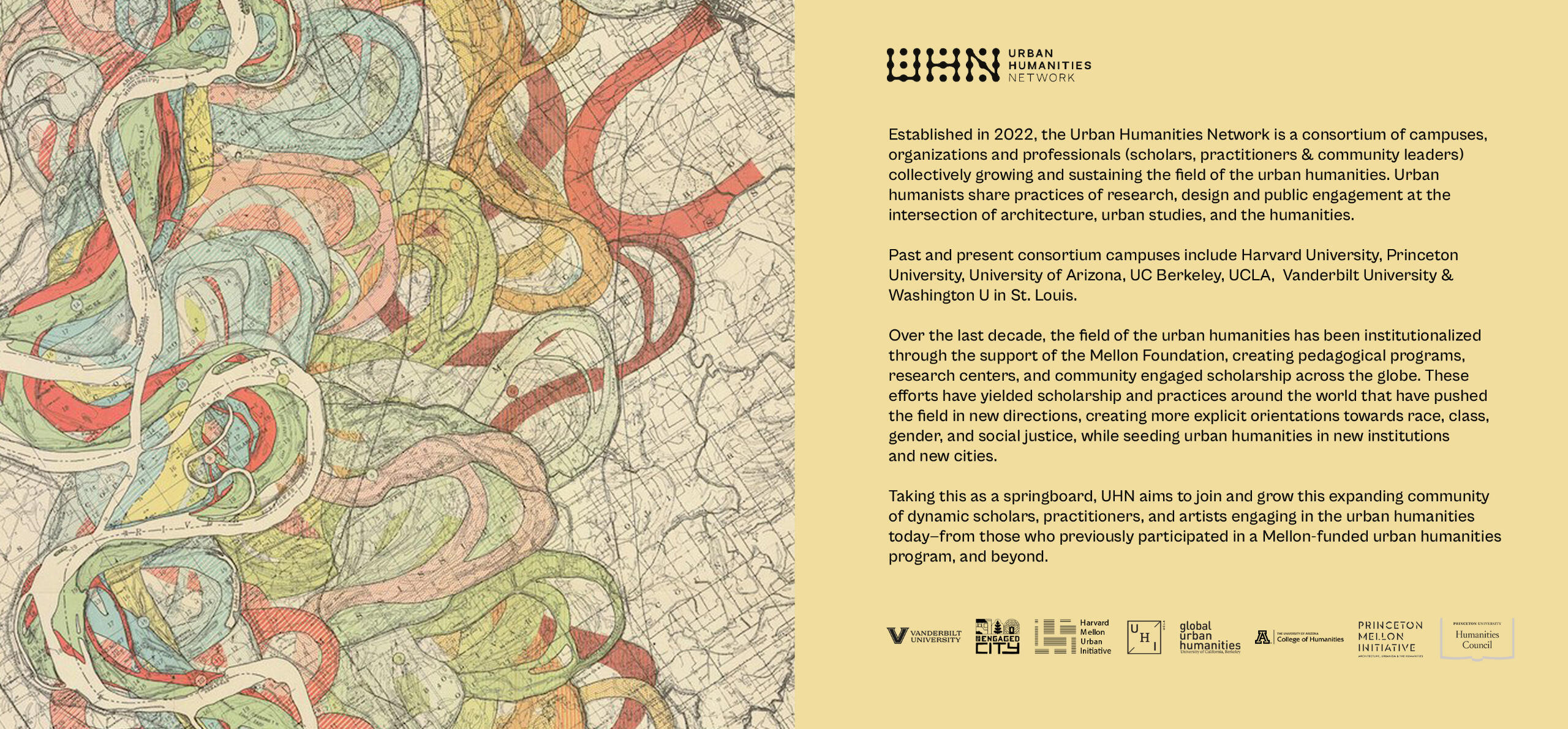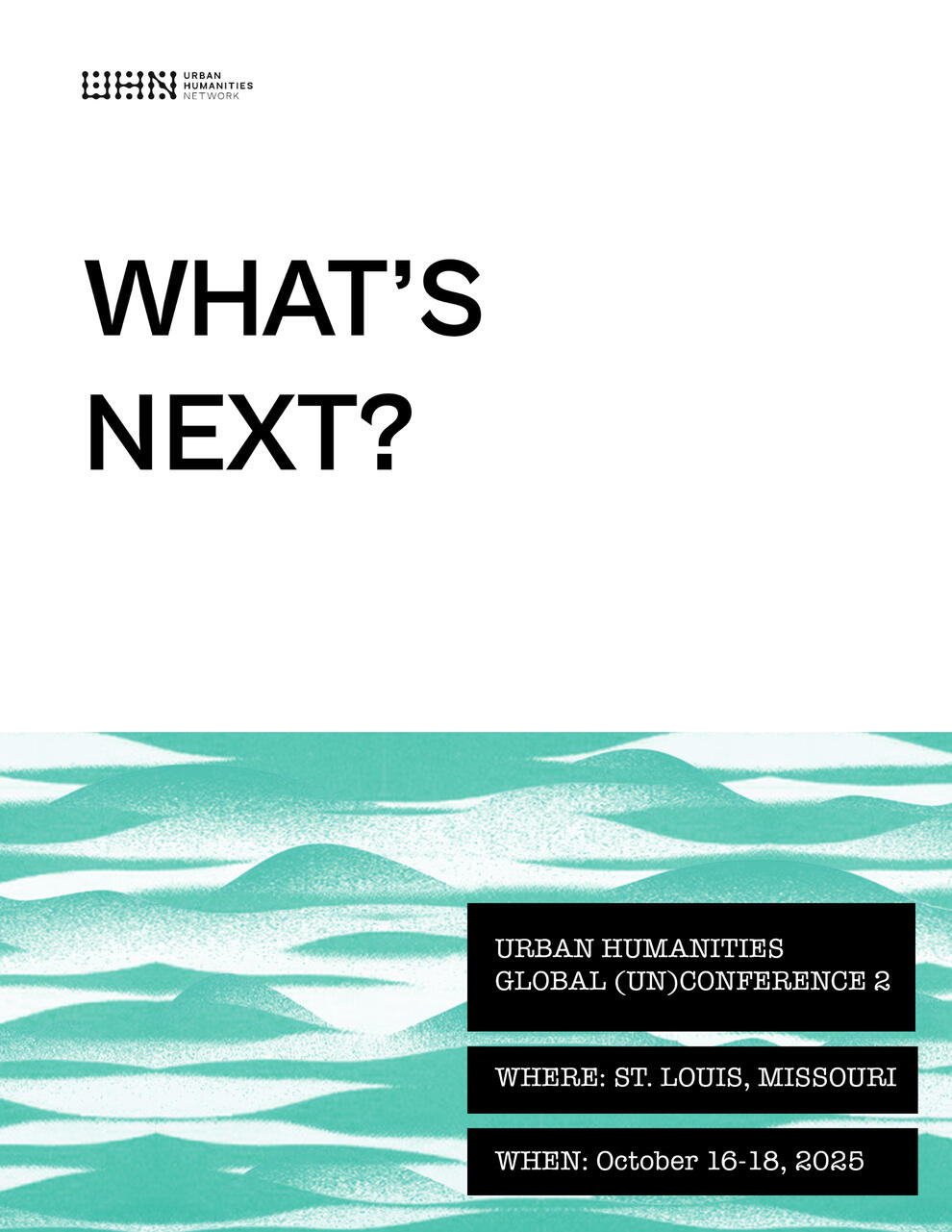
Public Events
The following events are free and open to the public. Please use this form to register for the public events.Thursday, October 16: Lightning Talks
4:00p-6:00p | Location: .Zack Theater (3224 Locust St.)Lightning-fast talks about innovative projects in the urban humanities. Lightning talks will offer lively glimpses of projects in the urban humanities, including artistic spaces of New York’s SoHo in the 1960s and 70s; fighting evictions and preserving cultural heritage in cities; the audacious live entertainment of Branson, MO; and a dance choreography shaped by Zagreb, Croatia.Light snacks and a cash bar will be available. Registration is required.
Friday, October 17: Poster Session
4:00p-6:00p | Location: Steinberg Gallery at WashU Sam Fox School.Posters will cover the latest projects in the urban humanities, including a visual exploration of Rural Gentrification across America’s Western Boom Towns; a study of why and how landfills become public parks in NYC, Toronto and Tel Aviv; an immersive panorama displaying Shenyang, China, 100 years ago; and a series of tufted textiles that storymap families from a mobile home park in Colorado.Attendees are invited to engage directly with poster presenters in an open, conversational format. Light snacks and refreshment will be available. Registration is required.
Saturday, October 18: Keynote by Adrienne Brown
4:30p-6:00p | Hillman Hall at WashUIn discussing the work of Arts & Public Life, a neighborhood platform for arts and culture on Chicago’s South Side grounded in cultural stewardship and community partnership, this talk will consider how place-based urban engagement can forge new models of knowledge production, make space for process and experimentation, and convene and steward a different kind of public sphere.
About the keynote speaker
Adrienne Brown is associate professor in the Departments of English and Race, Diaspora, and Indigeneity at the University of Chicago and the director of Arts + Public Life, a hub for artistic exploration, expression and exchange that fosters neighborhood vibrancy on Chicago’s South Side. She is co-editor with Valerie Smith of the volume Race and Real Estate (2015) and the author of The Black Skyscraper: Architecture and the Perception of Race, winner of the 2018 First Book Prize from the Modernist Studies Association, and The Residential is Racial: A Perceptual History of Mass Homeownership, published by Stanford University Press in 2024.



(Un)Conference Schedule Overview
A detailed program will be shared in late August
Thursday, October 16
9:00a - 9:45a: Early Check-in & Registration, (Breakfast & Coffee provided)9:30-10:00a: Welcome10:00-11:30a: Pre-workshops (concurrent sessions)11:30a-1:00p: Lunch (provided)1:00-2:30p: Pre-workshops (concurrent sessions)4:00-6:00p: Lighting talksFriday, October 17
8:30-9:00a: Breakfast & Coffee (provided)9:00-11:00a: Experiential & Site-Specific Sessions (Concurrent Sessions)12:00-1:00p: Lunch & Engaged City Conversation (Lunch provided)1:00-2:00p: Mini-Workshops
(Concurrent Sessions)2:00-3:00p: Mini-Workshops
(Concurrent Sessions)4:00-6:00p: Poster Session & Exhibition TalkSaturday, October 18
8:30-9:30a: Breakfast & Coffee (provided)9:30a-12:00p: Experiential & Site-Specific Sessions
(Concurrent Sessions)12:00-1:00p: Lunch1:00-2:30p: Roundtables
(Concurrent Sessions)2:30-4:00p: Roundtables
(Concurrent Session)4:00-8:00p: Keynote, dinner & celebration
Hotel Block Registration: Coming Soon
We are pleased to offer a range of session formats designed to foster engagement, dialogue, and exchanges. Each format invites participants to actively engage with the presenters and materials in unique way:
Site-specific & Experiential Sessions: These sessions extend beyond the traditional conference and into the St. Louis region -- offering place-based experiences that ground ideas in the region. Engage with research and methodologies in situ, through walking tours, installations, field activities, and on-site investigations.
Pre-Workshop: Designed for focused engagement, these sessions begin with pre-circulated materials—papers, syllabi, project briefs, or design research—distributed in advance. Participants come prepared for thoughtful, focused dialogue, offering a space to engage peers in meaningful critique, reflection, and discussion around evolving work.
Mini-Workshop: These interactive, hands-on sessions introduce participants to new tools, methods, practices, or approaches. Through guided activities and collaborative exercises, attendees will gain practical insight into emerging methodologies.
Public roundtable discussions: Each roundtable speaker will begin with brief remarks framing their perspectives, followed by an open-ended, self-directed discussion. Audience engagement is central—participants are encouraged to contribute questions, ideas, and provocations that help shape the evolving conversation
Lightning talks: These 5-minute, high-energy presentations showcase a range of work—from early-stage research and in-progress scholarship to experimental initiatives and project pitches. This format is ideal for surfacing emerging ideas, testing concepts, and identifying potential collaborators in a dynamic, fast-paced setting.
Poster Session: The poster session will open with a focused discussion on experimental exhibitions, offering critical insight into urban humanities focused exhibitions. Following this, attendees are invited to engage directly with poster presenters in an open, conversational format.
List of Registered Participants
Åbo Akademi University
Cal Poly Pomona
California State University, Channel Islands
California State University, Fresno
Champlain College
Columbia University
Concordia University
Florida International University
Harvard University
Hunter College
Independent planning and economic development practitioner
James Madison University
Kwantlen Polytechnic University
Lawrence Technological University
Miami University
The Ohio State University
Princeton University
Queen Mary University of London
Royal College of Art
San Francisco State University
School of the Art Institute of Chicago
The New School; Laboratory for Urban Spatial and Landscape Research
University of Illinois Urbana-Champaign
Universite Sorbonne Paris Nord
University College London
University College of the North
University of Arizona
University of Arkansas-Fort Smith
University of California, Los Angeles
University of California, Berkley
University of California, Santa Barbara
University of Colorado Boulder
University of Manitoba
University of Michigan
University of North Carolina at Chapel Hill
University of Notre Dame
University of Southern California
UW-Milwaukee
Vanderbilt University
Velaslavasay Panorama
Wabash College
Walking Cinema
WashU
Wayne State University
Yale University
CONFERENCE BACKGROUND
Building on the success of the inaugural (Un)Conference 1 in Tucson, AZ, in March 2023, the Urban Humanities Network (UHN) warmly invites Letters of Interest (LOI) for participation in (Un)Conference 2 at Washington University in St. Louis.In the spirit of the Urban Humanities, we are issuing an open call for LOIs to participate in our upcoming convening. We invite submissions showcasing work at the intersections, edges, and territories of design, urban studies, and the humanities.At this critical juncture of the urban humanities, we ask: what are the key and emerging practices driving the urban humanities today? How are the entanglements of disciplines, landscapes, histories, movements, narratives—and more—bringing to light overlooked, underwritten, or previously unknown histories concerning urban places? What still needs to be filled, addressed, and imagined? Each of our respective relationships and varying approaches to urban humanities practice, situated in our embodied and site-specific knowledge, will inform our collective response to these questions.

PROGRAMMING OVERVIEW
From October 16-18, 2025, we will continue navigating toward the practice and future of urban humanities in St. Louis at Washington University in St. Louis (WashU). WashU is proud to host (Un)Conference 2 and is excited to share the areas in which they have cultivated focused efforts toward urban and public humanities scholarship and practice.Programming will include opportunities for participants to share their emerging or completed work through a variety of sessions including engaged workshops, mini-workshops, lightning talks, and/or a set of place-based experiences to foster deeper exchange. It is our aim that all attendees will actively contribute to the programming.In particular, St. Louis, with its critical geographical setting at the confluence of two culturally rich watersheds and its multifaceted and complex history of racial, cultural, and economic intersections as well as creative spatial practices, will guide our attention.We will visit multiple neighborhoods in the St. Louis region as a through-line of place-based engagement making connections to adjacent St. Louis places, histories, and latent narratives.
-Themes to explore in programmed activities include:Practices and Methods of Urban Humanities: sharing creative scholarly methods, deploying new practices, testing field-focused approaches; considering where/how the urban humanities are situated within different institutionsMovement & Migrations: reflections on historiography, silences in the archive, reading against the grain, critical fabulation, counter-narratives; within the context of St. Louis, we are especially interested in watersheds, highways, movements and migrations of people, ideas, or materialsUnEarthing (ReEarthing): movements, studies, acts, and practices that daylight overlooked; underwritten, or previously unknown histories; intersections between this work and civic engagementFluidity: embracing the ever-changing dynamic state of the field and place; calling attention to the ebb and flow of space, histories, and power, and the consistent fits and starts of collaborationsEntanglements: connections, legacies, and bindings; engagements towards a shared understanding of disciplines (humanities + Design), cultural landscapes, (people + place), diasporas (movement + settlement), narratives, materials, and imaginaries (Utopias + Protopias)

JOIN US!
SIGN UP FOR UPDATES
SAY HELLO!
You can also direct queries to [email protected].
© Urban Humanities Network. All Rights Reserved.